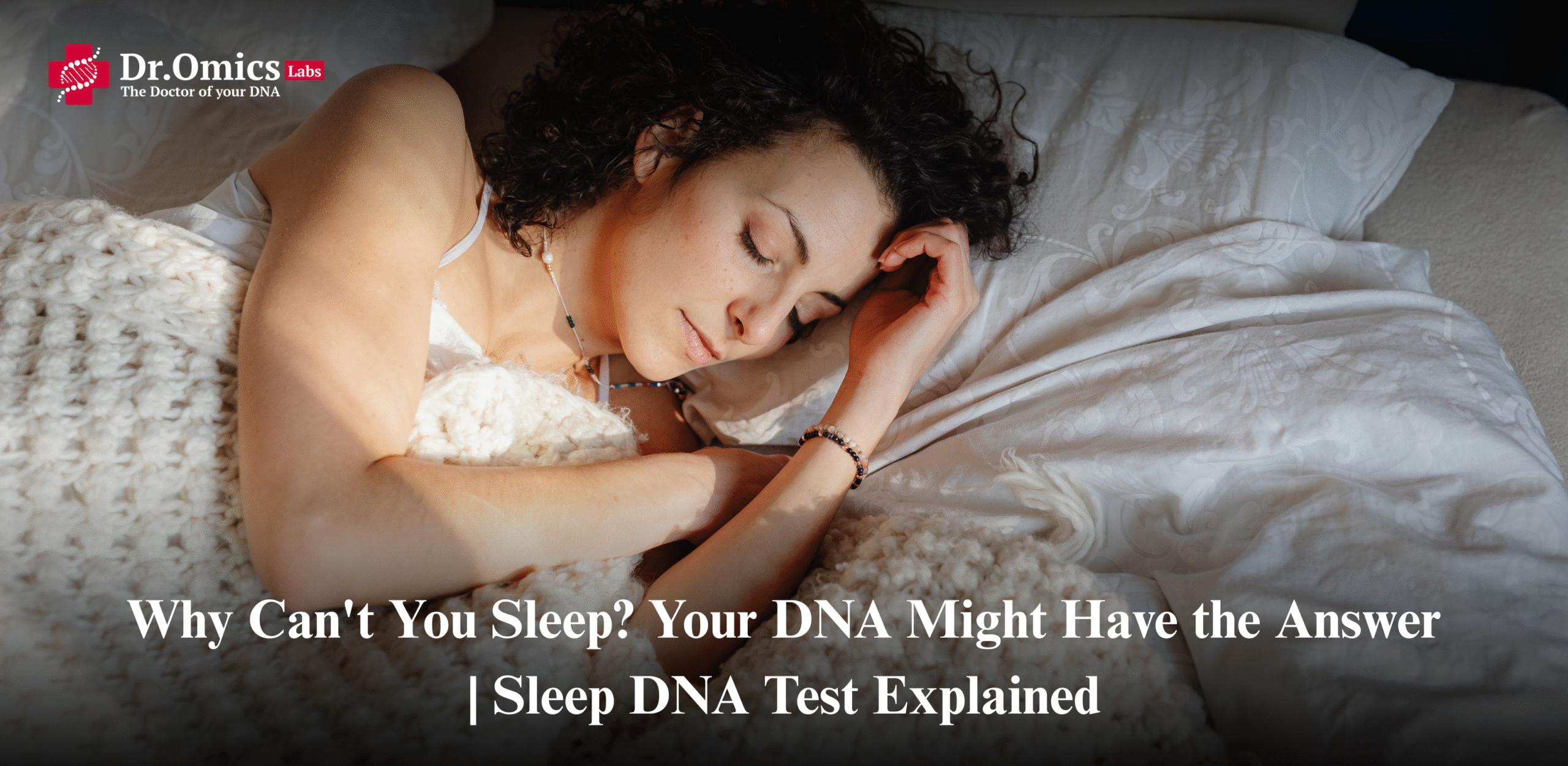Struggling with restless nights, frequent awakenings, or persistent insomnia? While stress and lifestyle are common culprits, emerging research shows much of your sleep quality may be influenced by your DNA. A sleep DNA test uncovers the genetic factors behind sleep challenges, helping personalize solutions for better rest.
The Genetics Behind Sleep Disorders
Several genes have been linked with different aspects of sleep, including:
- Insomnia genes: Variants in genes like CRHR1 and FKBP5 impact how your body handles stress and can predispose you to difficulty falling or staying asleep.
- Circadian rhythm genes: Genes such as PER1, PER2, CLOCK, and CRY1 regulate your body’s internal clock that dictates your natural sleep-wake cycle.
- Other genes influence your total sleep duration, quality, and risk for issues such as sleep apnea or restless leg syndrome.
By identifying these genetic markers, a genetic sleep disorders profile helps explain why you might have poor sleep despite good sleep hygiene.
How Sleep DNA Tests Work
A typical sleep DNA test involves collecting a saliva or cheek swab sample that is analyzed for variations in sleep-related genes. The test reports on:
- Your circadian chronotype (morning lark vs night owl)
- Propensity for insomnia and other sleep disruptions
- Genetic influences on stress reactions affecting sleep
- Recommendations for lifestyle adjustments and interventions to align with your biology
This approach moves beyond guesswork to offer personalized sleep solutions rooted in your unique DNA.
Improving Sleep Quality Genetically
Armed with your test results, you can tailor your bedtime routine and environment according to your genetic makeup:
- Optimize sleep timing based on your circadian rhythm genes.
- Adjust light exposure and meal timing for better sleep hormone regulation.
- Incorporate stress reduction methods targeting genetically influenced anxiety.
- Use supplements or foods guided by genetic predispositions to improve melatonin or serotonin production.
Choosing the Best DNA Test for Sleep
When selecting a best DNA test for sleep, consider one with comprehensive coverage of sleep and circadian rhythm genes, validated by scientific research and backed by professional counseling to interpret results accurately.
If sleep troubles persist despite good habits, your DNA may reveal the underlying cause—and offer a roadmap to better, more restful nights. Feel free to ask for guidance on selecting a sleep DNA test or designing your personalized sleep improvement plan.




